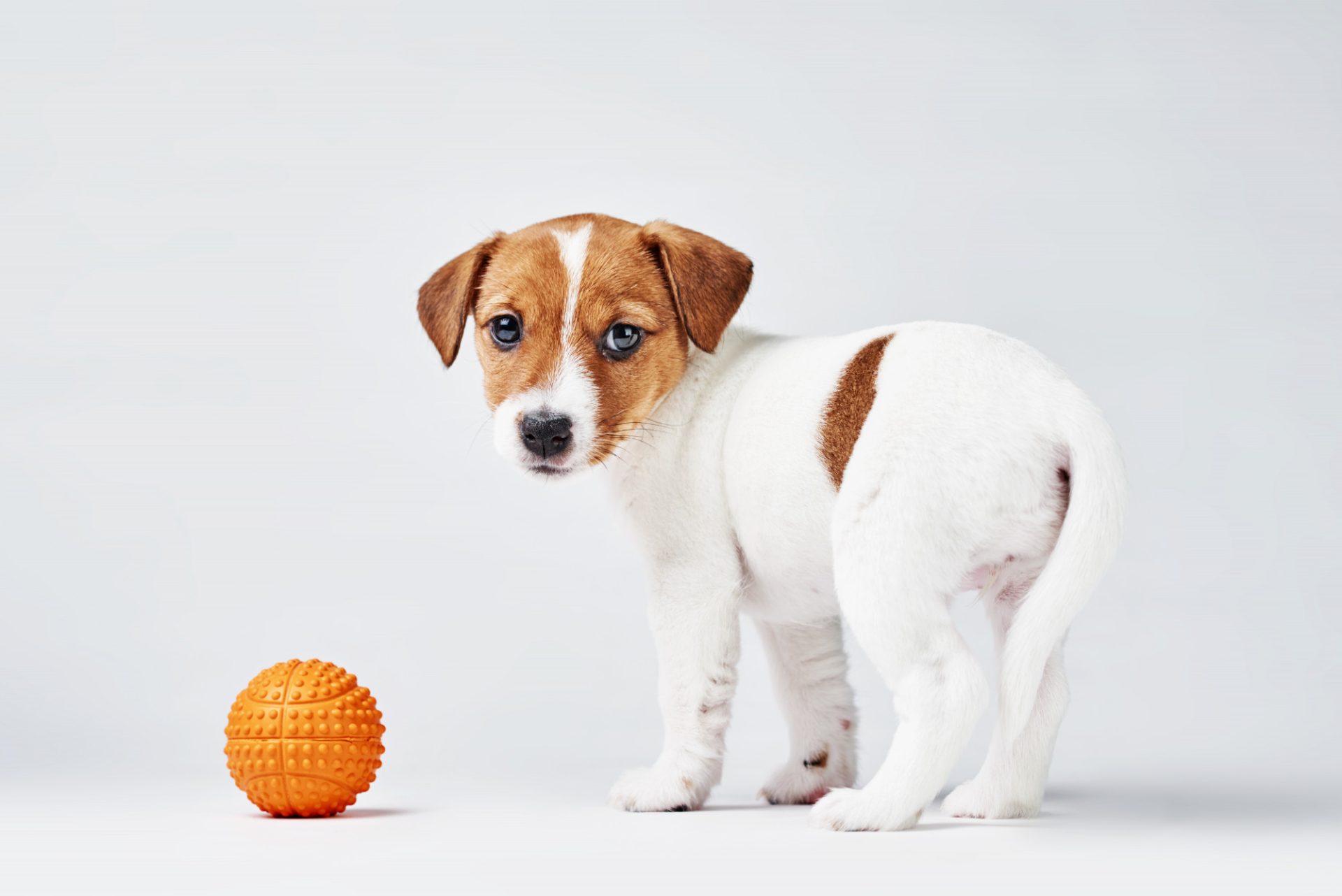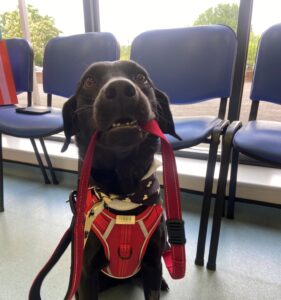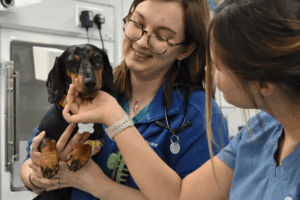Exercising your puppy is an essential part of their growth and development. Not only does it help them stay physically fit, but it provides mental stimulation to help them socialise with other dogs and people, encourages confidence and is a chance to reward good behaviour.
However, there is such a thing as too much exercise! In this blog, we’ll explore the problems caused by too much exercise and provide top tips for exercising your puppy in a healthy way.
Recommended exercise
There are plenty of great ways to let your puppy burn off some energy and remain active and healthy, including play time! We recommend:
Short sessions
The length of time you should spend walking your puppy will depend on their size, breed, age and energy levels – but for all puppies it’s important to limit exercising to short sessions.
We advise starting off with short walks around the block and gradually increasing the distance as they build up their stamina and fitness levels slowly.
It’s best to consult your vet for specific recommendations for your puppy.
Play
Tug of war and retrieving games will provide plenty of physical and mental stimulation, as well as help to strengthen your bond with your puppy.
Using a food dispensing toy or Kong, is also another great form of exercise, with the added benefit of making meal times fun.
Frequent breaks
It’s important to make sure your puppy takes frequent breaks and be sure to offer plenty of praise and treats for good behaviour.
Exercising when unvaccinated
It’s important to remember, whilst your puppy is not fully vaccinated, exercising should be done at home to prevent picking up any nasty bugs, just make sure your garden is puppy-proofed!
To get your puppy used to new surroundings, smells and other people and dogs, you can carry them, or take trips in the car.
Avoid high impact, strenuous activities
Your puppy is still developing, so you need to avoid strenuous activities, such as long walks, or any sustained exercise, like running or cycling, until they are fully grown.
High impact exercise such as jumping, twisting and skidding is a big no-no too. Puppies under 3 months should also not be attempting to climb or use stair, so we recommend fixing a stair gate by the bottom step if this could be a problem in your home.
Problems caused by too much exercise
Risk of joint and bone damage
Too much exercise or high impact activities whilst your puppy is young could risk permanent damage to their joints and bones, which can lead to conditions such as arthritis and hip dysplasia.
Puppies’ joints need sufficient time for their growth plates to fuse before they are ready for high intensity exercise and high impact activities. This varies by breed; most dogs are fully grown by one year, but larger breeds such as Greyhounds, Labradors, Dobermans and Great Danes can take up to 2 years to reach full size.
Some breeds are also at higher risk of joint problems, like hip dysplasia, so should be exercised sensibly to prevent issues. It’s also important to feed your puppy healthy and appropriate meal sizes, to avoid them putting on weight, which will put more pressure on their joints.
Speak to your vet for advice if you are worried about your puppy’s joints.
Overtiredness
Puppies are generally bouncy and full of enthusiasm, so it may be hard to spot signs that they are becoming tired or doing damage to their bones and joints. This is why it’s important to keep exercise sessions short and encourage regular breaks.
As your pup grows and gets older, the duration of the walks can be increased. Consult your vet for specific recommendations for your puppy.
Boredom
There’s a fine balance between too much exercise and not enough. Limiting your puppy’s exercise too much could cause boredom, frustration and lead to behavioural problems.
But equally, puppies’ attention spans are short and they can become bored with lengthy exercise sessions.
Sore paws
Puppies have soft paws and it takes time for their pads to toughen up.
Overexercising your puppy will result in sore paws, so to prevent this keep sessions short and vary the surfaces you exercise your puppy on.
If you would like more specific advice about exercising your puppy, please get in touch with your local St Kitts practice.
St Kitts Veterinary Centre: 01252 844044
Basingstoke Veterinary Centre: 01256 844944
Crookham Park Veterinary Centre: 01252 913990
Firgrove Veterinary Centre: 01252 877799





